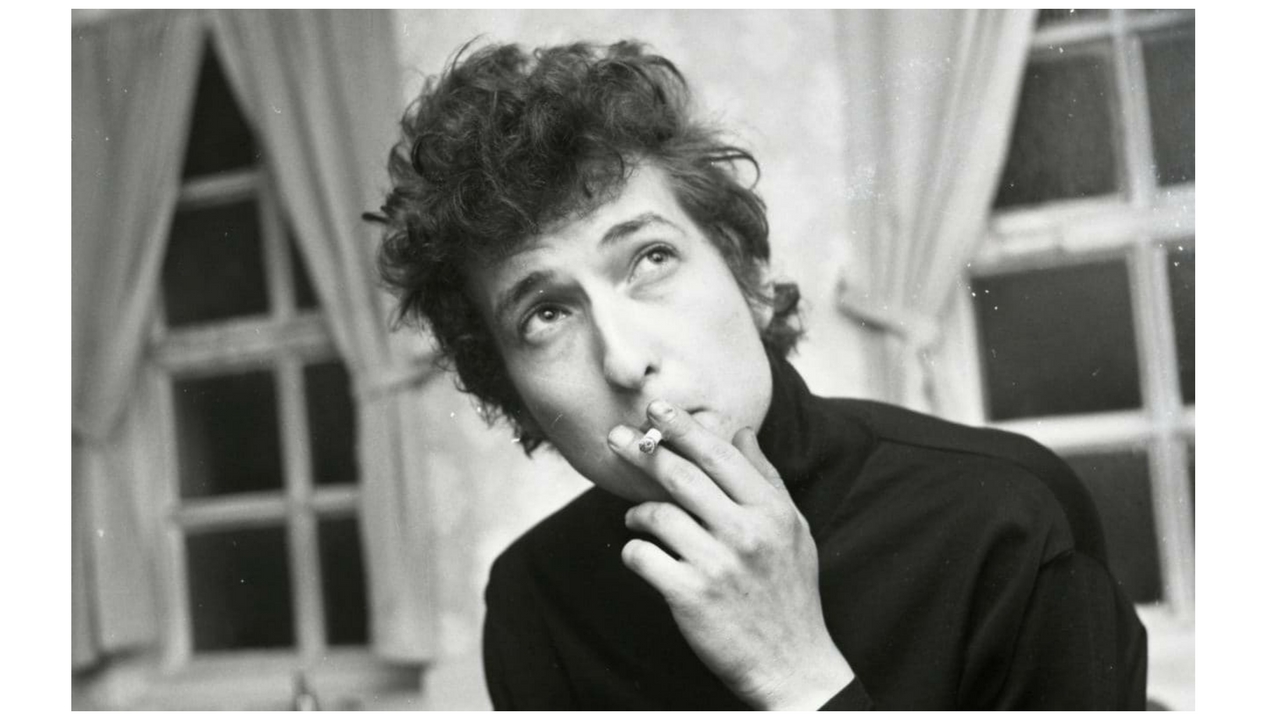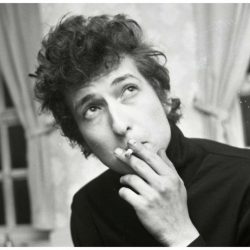
BOB DYLAN AWARDED THE NOBEL PRIZE IN LITERATURE
Rumour has it guitar shops were packed this 13th of October with writers willing to buy acoustic guitars. Witnesses are saying they recognized prominent figures such as Neil Gaiman, Haruki Murakami, and J.K. Rowling. Is it pure coincidence or has something to do with the announcement of the 2016 winner of the Nobel Prize in Literature?
In 2016, the much- coveted prize goes to Bob Dylan “for having created new poetic expressions within the great American song tradition.”
Bob Dylan was born on May 24, 1941 in Duluth, Minnesota. He grew up in a Jewish middle-class family in the city of Hibbing. As a teenager, he played in various bands and with time his interest in music deepened, with a particular passion for American folk music and blues. One of his idols was the folk singer Woody Guthrie. He was also influenced by the early authors of the Beat Generation, as well as by modernist poets.
 Dylan moved to New York in 1961 and began to perform in clubs and cafés in Greenwich Village. He met the record producer John Hammond with whom he signed a contract for his debut album, called Bob Dylan (1962). In the following years he recorded a number of albums which have had a tremendous impact on popular music: Bringing It All Back Home and High-way 61 Revisited in 1965, Blonde On Blonde in 1966 and Blood On The Tracks in 1975. His productivity continued in the following decades, resulting in masterpieces like Oh Mercy (1989), Time Out Of Mind (1997) and Modern Times (2006).
Dylan moved to New York in 1961 and began to perform in clubs and cafés in Greenwich Village. He met the record producer John Hammond with whom he signed a contract for his debut album, called Bob Dylan (1962). In the following years he recorded a number of albums which have had a tremendous impact on popular music: Bringing It All Back Home and High-way 61 Revisited in 1965, Blonde On Blonde in 1966 and Blood On The Tracks in 1975. His productivity continued in the following decades, resulting in masterpieces like Oh Mercy (1989), Time Out Of Mind (1997) and Modern Times (2006).
Dylan’s tours in 1965 and 1966 attracted a lot of attention. For a period he was accompanied by film maker D. A. Pennebaker, who documented life around the stage in what would come to be the movie Dont Look Back (1967). Dylan has recorded a large number of albums revolving around topics like the social conditions of man, religion, politics and love. The lyrics have continuously been published in new editions, under the title Lyrics. As an artist, he is strikingly versatile; he has been active as painter, actor, and scriptwriter.
Besides his large production of albums, Dylan has published experimental work like Taran-tula (1971) and the collection Writings and Drawings (1973). He has written the autobiography Chronicles (2004), which depicts memories from the early years in New York and which provides glimpses of his life at the center of popular culture. Since the late 1980s, Bob Dylan has toured persistently, an undertaking called the “Never-Ending Tour”. Dylan has the status of an icon. His influence on contemporary music is profound, and he is the object of a steady stream of secondary literature.




